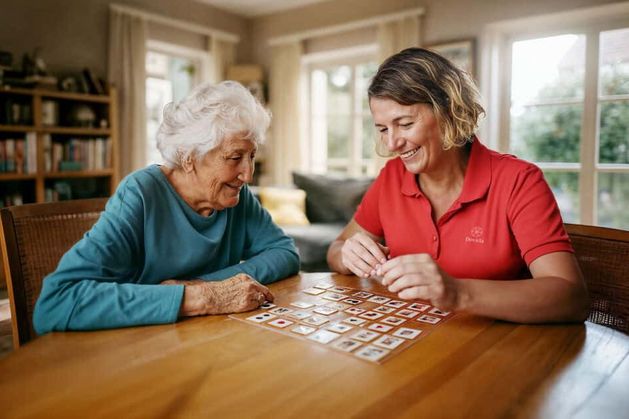This September, as part of World Alzheimer’s Month, Irish care organisation Dovida is encouraging open conversation and sharing practical advice for those affected.
According to the HSE, 16,967 people in Dublin are currently affected by Alzheimer’s or other forms of dementia, and for every diagnosis, there is often a family navigating the emotional and practical challenges of care.
“When a parent, partner, or loved one is diagnosed with dementia, it can feel like everything changes,” Danette Connolly, Director of Clinical Governance at Dovida, said.
“Routines, relationships, and responsibilities can be thrown into flux, and for many families, it’s hard to know what to do.
“It’s important to have three key principles in mind when caring for a loved one living with dementia,” she added.
Establishing a consistent routine is key, as predictability reduces confusion and anxiety.
Using simple, calm communication techniques like speaking slowly, avoiding arguing or correcting, and validating a loved one with dementia is also suggested.
Ms Connolly also said that encouraging independence where possible is advisable, like encouraging them to participate in small tasks to maintain dignity and confidence.
“Routines, relationships, and responsibilities can be thrown into flux, and for many families, it’s hard to know what to do,” she said.
But dementia care is not always straightforward, especially when a loved one refuses help.
“One of the most difficult challenges relatives of someone living with dementia face, is what to do if they refuse care,” Ms Connolly said.
“Refusing care often comes from fear, confusion, or a loss of control, but there are a few strategies that may help.
“It’s important to remember you’re not doing anything wrong.
“Refusing care is a common issue people caring for loved ones with dementia face, but it’s manageable with the right tools and support,” she added.
Dovida recommend that a gentle approach should always be used, offering choice and time.
People may respond better to a professional than a family member, but carers should be introduced gradually so that a loved one can build familiarity.
Other options include in-home support, local day programmes, or short stays in care facilities.
As awareness grows this September, families in Dublin are being encouraged not just to speak openly about dementia, but also to seek the tools and support they need.

